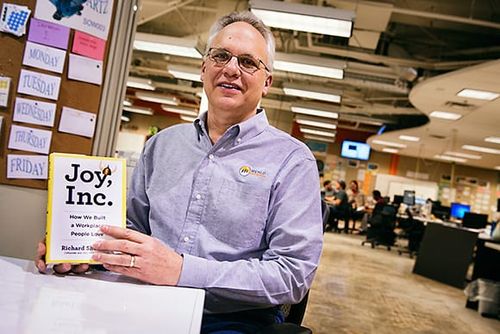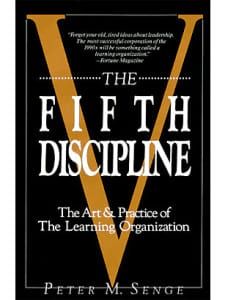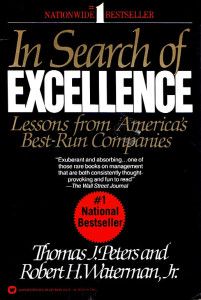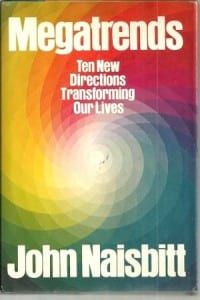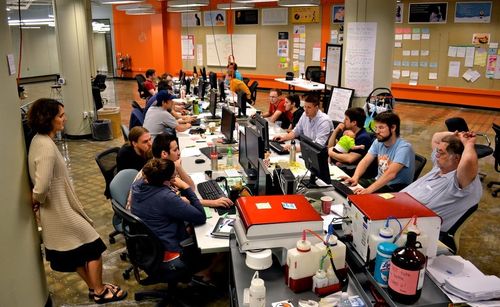Interview Richard Sheridan : "What you want as an engineer is to delight."
What is a Joyful Culture?
Some idealistic concept or a true necessity in today's organizations? Richard Sheridan made his choice: Joy is not only the purpose of his company Menlo Innovations, it's what drives each and every employee that works there.
Before his talk at USI 2016, find out more about the journey that led Richard Sheridan to realizing his dream: finding a better way to run a business.
In your book "Joy Inc. How We Built a Workplace People Love", you talk about going from joy to fear to disillusionment and then back to joy. When you felt fear or joy, how did you know it was fear, how did you know it was joy?
In the early days, the original joy for me was realizing that I had found a life’s purpose, something I really enjoyed doing, and that I believe could deliver value to the world. And that was writing software. It’s a very creative and intellectual activity.
I was excited about that at a very early age. I literally wrote my first program when I was 13 years old. I had a lot of great first experiences with computers, including getting paid to write software by the time I was 15!
It was a very joyful experience, though quite frankly a bit unatural for most kids my age. They were delivering newspapers, mowing lawns, not writing software!
I eventually got a couple of degrees in Computer Science and Computer Engineer from the University of Michigan. By 1992, I was about 25 and had just entered happily one of the most important fields in history! I was well prepared and educated for it, and I loved what I did. That was my initial joy. I was on top on the world really!
Then the fear part started creeping in very quickly. I got out into the professional world by joining a company and very quickly realized there were problems in the field I had chosen. Not with me personally, but in my industry.
I started to experience what the industry now calls Death March Culture, where you work 60/70 hours a week, spending time away from family, missing deadlines and delivering bad results with problems. Users can’t understand what you’ve created, so you start writing deeper user manuals…
And all of a sudden, I lost the joy I felt on two fronts: first I was being managed with fear. People asking you "how many hours did you work this week?" not "how well did you do?" My boss was questionning me about anything I wanted to do on my own. Even things that were not work related!
The other fear was asking myself if I had chosen the wrong profession. I had spent the last twelve years preparing myself what I thought was going to be a wonderful career. And if this was not the right choice, then what was?
Now I’m afraid to go to work and wondering if my whole industry is not like this. Do I still want to be a part of it?
That feeling continued for much as the next 10 years.
… and then, back to joy?
Yes! I’m an eternal optimist. I had to find a way out. I believed there was a better way of doing things that was customary in my industry. And I was determined to find it. I didn’t have a clear picture, but I knew it had to be different. My journey led me to authors and books. Books not on technology though, but on team work, organizational design, management, vision.
Any examples you can give us?
Of course. Peter Senge’s book The Fifth Discipline: The Art and Practice of The Learning Organization. Tom Peters’ book In Search of Excellence was also important to me. John Naisbitt and Patricia Aburden wrote a one called Megatrends.
All these books confirmed something I fundamentally believed in: there is a better way to run a business. They didn’t necessarely tell me how to get out, but they at least told me that if I did, I could achieve this thing I was dreaming about. That gave me hope for the future. Which was what I needed more than anything else!
What was weird and frustrating was that everybody thought I was doing a great job and asking me to keep going! In 1997, when I became vice president of R&D for a company called Interface Systems I decided there and then I was going to build the best software team anyone had ever seen. For two years I tried hard. And let me tell you, trying hard is not enough!
You can’t will yourself to a better culture, you have to take a different approach.
In 1999, it became clear to me after reading a certain book and saw a particular video. I had what Frans Johansson calls The Click Moment where suddenly, everything snaps into place, and what you need to do becomes crystal clear. I wasn’t CEO, I was only in charge of R&D, but I still managed to achieve something in two years. And the joy was back for me. There was structure, happy users, happy peers, productivity, human energy, etc. It was palpable.
And then the Internet bubble burst! In 2001, hundreds of thousands of people, including me, were put out of work. But they couldn’t take away what I had learn in those two years. I started a new company with my co-founders based on the lessons of those two years. And that’s what became Menlo Innovations.
That’s quite a story! What made you choose the word "Joy" to qualify your concept, as opposed to happiness for example?
It’s actually a very careful choice. And it was really born out of Simon Sinek’s talk Start with Why.
I had been talking about Menlo around the world for a while. Somebody heard me speak, sent me that video from Simon Sinek and said : "Rich, this is what you do! You start with why. You’ve embodied what Sinek talks about in his video."
I watch it carefully and realized I did not do what Simon Sinek instructed. When I told people about Menlo, I told what we did, and how we did it. But I would seldom get to the Why. And I realized how important that was: people don’t buy what you do, they buy why you do it.
So I decided to start talking about Menlo starting with why. And what was I going to say? One of our main mission statement had been clear for a while: to end human suffering in the world through technology. And I thought I had our why… But then I thought "Really? Suffering? Is that what I want people to think about when they think about Menlo? ". Probably not the best choice of word! So I looked further down in our mission statement and down at the very bottom, almost waiting there like a gift to be unwrapped, was this sentence : "Our goal since 2001 is to return joy to one of the most unique endeavors mankind has ever undertaken, the invention of software."
I realized that was it. Joy is the message we want to bring to the world.
I distinguish it from "happiness" because I think it would be unnatural for anyone to be happy all the time. It would actually require medication! But for me, joy is a much longer term proposition. Just like raising children really! No matter how good they are, how much you love them, it’s not all happiness. There is pain, suffering, difficulties, conflict… But at the end of it all, there is joy.
The hard work that comes from doing something meaningful is joy. We decided to build our entire team, company, methodology and vision around one very simple idea: that we can delight people. And for us, there is joy in that delight. In order to do that, we had to change everything!
Is traditional perception of management compatible with a joyful culture? If not, what should change?
We take a very different view of management. What we steer away from are bosses. Bosses tell people what to do, and if they can’t get what they want done they use fear to motivate.
The other side of the equation is leadership. Leaders influence people, they provide a vision. It can come from anywhere in the organization, it doesn’t have to be hierarchical. Menlo is a company filled with leaders and there are no bosses.
But this is not new. We’ve known through books that this is true, and has been for a long time. But the world doesn’t always pay attention to the things we actually know are true.
We have a sign here that says "Technology changes rapidly, people change slowly"…
The French are notoriously pessimistic, as you might know! How do you think they’ll take to this idea of a joyful culture?
I had an experience in Berlin where I gave a talk. I had male German engineers coming to me in tears after the talk!
If I can make them cry, perhaps I can move the French too.
I also think I can get pass the pessimism is because I can connect to the idea of delighting people in the world with whatever work it is they do. I will remind people why they chose their profession. It’s much deeper than "I wanted to make a lot of money", or "that’s what I want to school for". They can be engineers, artists… it doesn’t matter.
You clearly get you kicks from technology. What do you find most exciting?
Probably when someone touches the work that we’ve done and realizes we’ve made his life better. This isn’t just technical work, or "look how smart I am" sort of thing. What you want as an engineer is to delight. That’s where I get my kicks.
We are a service oriented industry. There is no value to computers unless they are serving people.

